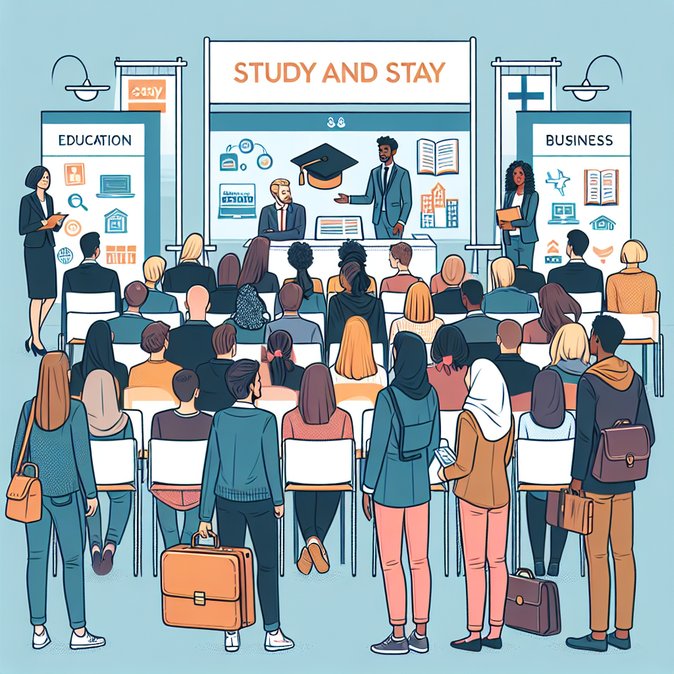
On 5 November 2025 the University of Applied Sciences in Turku hosted its annual “Study and Stay in Turku” career afternoon, aimed at persuading foreign students to build their futures in south-west Finland after graduation. Some 200 on-site participants and another 600 online viewers heard success stories from alumni now working at ship-design firm Meyer Turku, diagnostics leader PerkinElmer and several local start-ups.
Context – International degree students already account for 14 % of higher-education enrolments in the Turku region, but only half remain in Finland five years after graduation. With demographic pressures shrinking the domestic workforce, retaining young talent has become a municipal priority. The event, organised by the City of Turku’s internationalisation office with local universities and Business Finland, combined a keynote on Finnish work culture with a rapid-fire job-pitch session where 25 employers advertised 180 open roles.
![‘Study and Stay in Turku’ event targets retention of international graduates]()
Mobility angle – Experts from the Finnish Immigration Service (Migri) gave a live demonstration of the new online “EU Blue Card light” pathway, due to launch in January 2026, and explained how internships can count toward the two-year work-experience requirement for a permanent residence permit. Participants could book ten-minute consultations on permit extensions and family-reunification rules.
Practical take-aways – Employers were urged to assign a “relocation buddy” to each new hire and to start residence-permit applications immediately after signing, because January sees a seasonal spike. Students learned that part-time work during studies will remain capped at 30 h/week in 2026, but income earned counts toward the €1,695/month self-support threshold for graduate permits.
Next steps – Turku will survey attendees in February to track how many received job offers and residence-permit decisions, helping fine-tune the city’s talent-retention strategy.
Context – International degree students already account for 14 % of higher-education enrolments in the Turku region, but only half remain in Finland five years after graduation. With demographic pressures shrinking the domestic workforce, retaining young talent has become a municipal priority. The event, organised by the City of Turku’s internationalisation office with local universities and Business Finland, combined a keynote on Finnish work culture with a rapid-fire job-pitch session where 25 employers advertised 180 open roles.

Mobility angle – Experts from the Finnish Immigration Service (Migri) gave a live demonstration of the new online “EU Blue Card light” pathway, due to launch in January 2026, and explained how internships can count toward the two-year work-experience requirement for a permanent residence permit. Participants could book ten-minute consultations on permit extensions and family-reunification rules.
Practical take-aways – Employers were urged to assign a “relocation buddy” to each new hire and to start residence-permit applications immediately after signing, because January sees a seasonal spike. Students learned that part-time work during studies will remain capped at 30 h/week in 2026, but income earned counts toward the €1,695/month self-support threshold for graduate permits.
Next steps – Turku will survey attendees in February to track how many received job offers and residence-permit decisions, helping fine-tune the city’s talent-retention strategy.






